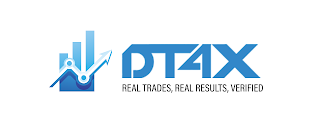Proprietary Trading
Presenting Proprietary Trading: How It Works
The
meaning of exclusive exchanging, or "prop exchanging" is movement
whereby an organization's brokers exchange values, fates, or different items
effectively, utilizing cash marked by the firm rather than their own capital,
or a customer's cash. As such, the organization faces the challenge and
provides the capital and edge cash (otherwise called exclusive assets), and
afterward takes any responsibility for misfortunes on itself. At whatever point
there's benefit from this sort of action, the firm and the dealer split the
benefits.
It's quite often a fact that individual prop dealers working
at a firm are independently employed. The brokers take speculative situations
in the market utilizing the organization's
cash determined to create benefits.
Every broker pays for the offices the individual in question
utilizes when exchanging, with something many refer to as a "work area
expense" or "seat charge." This reaches broadly however a dealer
may regularly pay out between $1000-$5000 each month, contingent upon the
administrations he needs for his exchanging. The work area charge cost
incorporates refined apparatuses like scientific bundles, market information,
trade network, newswire channel, and low inactivity request steering
innovation.
Restrictive firms and their merchants create colossal
exchanging volumes altogether, inside the business sectors
they exchange. This implies that there are economies of scale, bringing
about minimal expense clearing charges for organization merchants. The prop
firm for the most part likewise regularly has its own participation with the
trades, implying that every merchant's record per exchange expenses and trade
charges are extraordinarily decreased for exchange. Normally, a retail fates
financier like TradeStation charges an expense of $6.99 per contract exchanged
Bund fates; that is contrasted with an exclusive exchanging firm who might
ordinarily offer charges as low as 0.32 EUR per contract exchanged the market.
That implies that a dealer who makes only 75 exchanges per week with a solitary
prospects agreement and save more than $3700 every month in commissions.How
did prop exchanging start?
Open clamor exchanging floors started their end over 15
years prior, and electronic exchanging firms have jumped up to fill the hole.
In the mid 1990s, Eurex (initially Deutsche Terminborse) dispatched its
exchanging stage, and brokers who were educated focused.
More
agreements started to open up electronically and, as this occurred, electronic
just exclusive exchanging firms started to jump up, principally in Chicago and
London. The London International Financial Futures and Options Exchange (LIFFE)
shut down its customary exchanging floor 2000 and started to work completely
with electronic trades by then; additionally by then, it dispatched its Connect
stage that has made it's anything but a power in the commercial center. It's
anything but another stage was accessible to merchants, valid, yet it was
likewise the main design framework that was genuinely "open,"
permitting autonomous assistance financier firms and suppliers to foster
individual request steering innovation that was front end. Other than that,
previous floor brokers, modern by their own doing, were on the road searching
for another approach to help their occupations
and use the abilities acquired
in the floor exchanging climate. Numerous previous floor merchants set up
their own prop exchanging firms as they changed to the electronic climate.
Presently,
in Chicago, history is rehashing the same thing; albeit open clamor
exchanging floors have not shut (yet), electronic exchanging firms are getting
progressively typical and have expanded their impact throughout the last decade
as significant agreements' liquidity has moved into electronic business
sectors. There is no really dependable information that shows the public the
amount of the fates exchanging done is really done by these organizations,
however narrative proof inidicates that it's critical. A portion of these
organizations, indeed, say that the aggregate
prop exchanging volume across all business sectors is more noteworthy than
the all out every day volume of any of the four significant fates trades.
Euronext has said that the people and firms exchanging for their own records
(otherwise called "free merchants") include around 33% of all members
exchanging on it's anything but, an establishing however much 50% of the volume
of its STIR
(momentary financing cost) prospects contracts.

Comments
Post a Comment